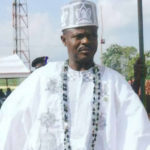Speaking at the end of the 29th conference of the association, themed: “Strategies to Achieve Sustainable Development Goals (SDGs), in the water” in Ilorin at the weekend, the president of the association, Mr Ehidiamhen Olumese, lamented that the situation was more worrisome despite abundant groundwater in the country.
Mr Olumese, who said that the entire 200 million Nigerians would have access to potable wholesome water with coordinated and professional development and management of the nation’s groundwater resources, added that the needs of future generation would also be guaranteed.
He said that Nigeria did not achieve the desired result of the Millennium Development Goals (MDGs), despite huge sum of resources committed into the programme in the provision of water facilities, adding that, “it is sad to say that most of these facilities are not providing the desired result
He also advised the federal government to prevent inherent dangers from water pollution by creating public awareness to make people appreciate issues of climate change, environmental and socio-economic impacts on the management of water resources.
The NAH in a communique signed by its national president, Ehidiamhen Olumese, also enjoined the National Assembly to act fast on the passage of the water bill before it into Act saying the Act was urgently needed to strengthen the governance structure in the water sector.
The Hydrogeologists, in the communique, observed, with concern, the effects of environmental contamination and pollution of surface and underground water resources.
They were of the view that there is the need for the government to recognise the effects of climate change on water resources, and the incorporation of such knowledge into various developmental efforts aimed at achieving the SDGs in the water sector.
The association advised the government to institutionalise good governance and best practices in the administration of the several projects in the sector.
It asked for an involvement of civil society organisation as monitoring agents in the transparent execution of water resources projects in the country.
The NAH called for training and retraining of hydrogeologists and other relevant professionals to acquire appropriate skills in groundwater modeling saying this had become the current trend in sustainable water resource management globally.







